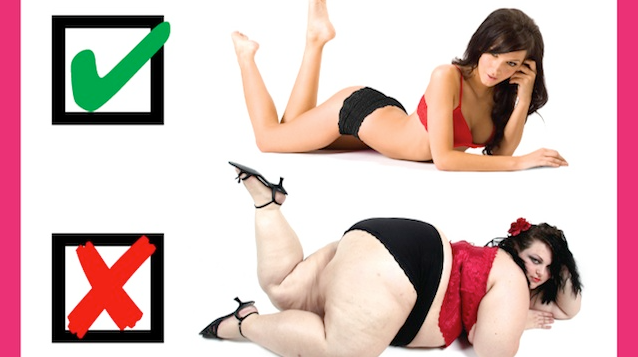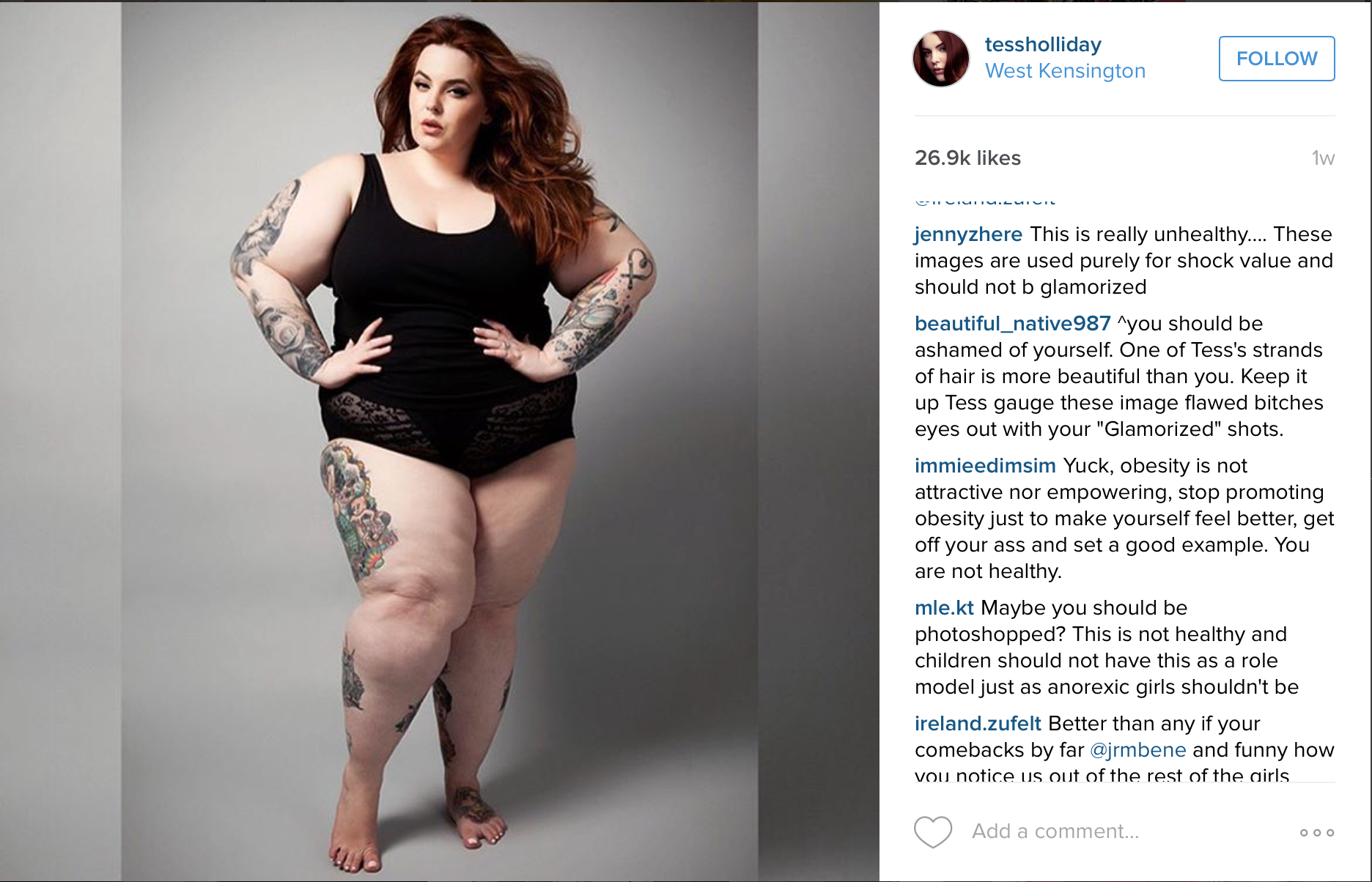Body Positive vs. Fat Shaming

The general consensus nowadays is that it's not acceptable to be racist. Similarly, while making jokes at the expense of a person with disabilities might draw some laughs in certain company, on the whole it's a no-no. But not so for fat shaming.
As more and more groups come forward and emphasize their humanity in the face of their oppression, there is one group that many continue not only to ridicule but to shamelessly attack: fat people.
There is something about our society that makes people hostile to the overweight. People seem to loathe anyone with a BMI north of 25. Why is this? No matter what fat shamers claim, their attitude is not based on concern about the health of overweight people. It's something else. Is humanity really so bigoted that, as other minorities are no longer possible to hate, they are refocussing their hostility on the fat? In a true chicken-and-egg-conundrum, the real explosion of fat-shaming appeared with the body-positivity movement meant to inspire people of any body size to love their physiques. If hateful comments and insensetive attacks on overweight people are cruel, is it really any better to encourage people to be happy (or even complacent) about being unhealthy?
As The Atlantic notes, there are those who make the case for a more "tasteful" version of fat-shaming wherein you are simply so negative about being fat (or in this instance, coerce fat people into negatively viewing their fat) until they just up and lose it. Then there are those who take a more different route, which could be labeled as anything but tasteful.
Canadian Youtuber Nicole Arbour's video was absolutely polarizing -- she was attacked by some and lauded by others. The video was deleted and then reinstated. Response videos were made, blogs were written, and for a few days everyone was asking each other the same question: "Did you see that video?"
The body positivity movement has been accused of glorifying obesity and taking models like Tess Holliday (below) and thrusting them into the spotlight as some bizarre example of normality.
These people (women more often than not) are accused not only of being fat or unhealthy, but of using their influence to encourage others to be both. But as Whitney Way Thore, the woman featured in TLC's My Big Fat Fabulous Life, tells us in repsonse to Nicole Arbour's attack, being fat is not always due to an overabundance of McDonald's french fries.
I don't know whether shaming fat people is a successful way to make them lose weight. I don't know whether the majority of fat Americans ended up that way because they are lazy or they overeat or they have a medical condition or it's due to geneology or whatever. What I do know is that how fat someone else is has absolutely no bearing on my life, and yet society tells me that I should care, and I should care very loudly.
It's hard to know which movement will win -- the one that celebrates even the bodies with massive rolls and flesh squeezed in unappealing ways or the one that shouts and screams and hates and shames in order to enforce society's opinions of bodily worth. Either way, neither side is finished talking about it, so we'll be hearing from them both for a while to come.
(Photos: Tess Holliday)








